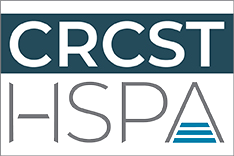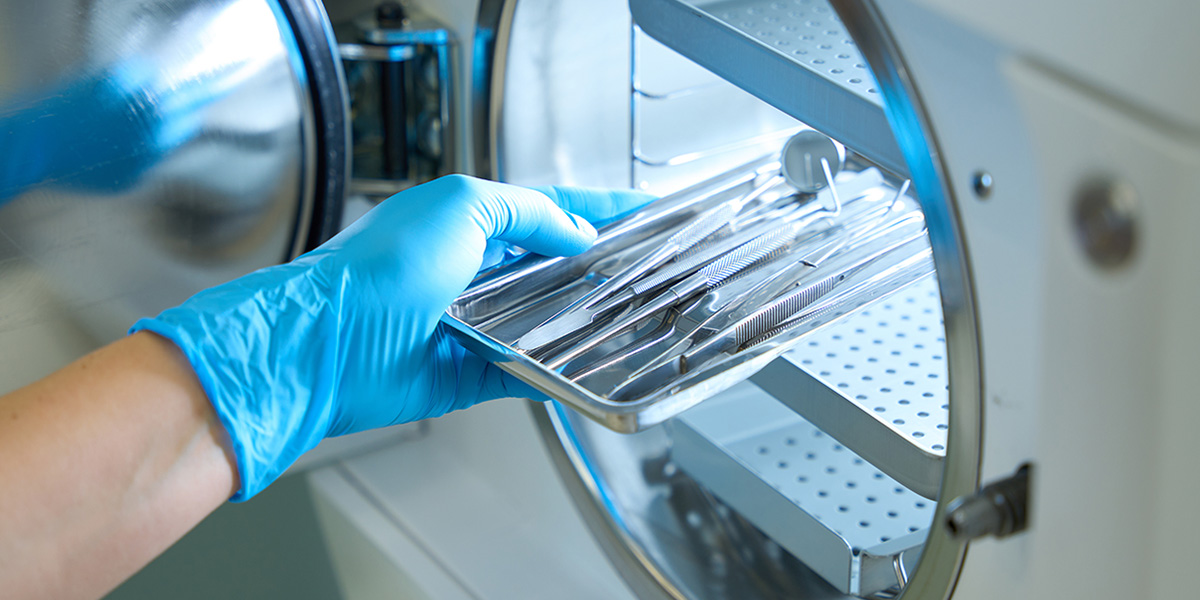Sterile Processing Technician (Voucher Included)
Become a Sterile Processing Technician and get CRCST Certified
Begin a critical healthcare career as a certified sterile processing technician (SPT). Sterile Processing Technicians, also known as Central Service Technicians, prevent infection by sterilizing, cleaning, processing, assembling, storing, and distributing medical supplies. This 100% online sterile processing technician course will train you to work as an SPT and will also prepare you for the Certified Registered Central Service Technician (CRCST) certification offered by the Healthcare Sterile Processing Association (HSPA)—all in 12 months or less.
You will learn all the necessary steps required to perform the duties and tasks of an SPT as you gain confidence to begin your new career. Gain proficiency in the step-by-step requirements of the sterilization process and fully prepare to pass the CRCST exam. A voucher for the exam is included in the cost of your course.

Prerequisites
In order to sit for the national certification exam, candidates must have a high school diploma or equivalent; it is recommended that you have this before enrolling in this program.
Program Length
The self-paced, 100% online program takes approximately 190 hours to complete. Course materials are available for 12 months upon purchase.
Tuition Costs
Enrollment in Sterile Processing Technician costs $2,995.
Voucher is included.

Course Objectives
- Define the sterile processor role, responsibilities, professional skill set, and communication expectations (including accurate use of medical terminology and anatomy) required in the central processing and surgical services departments
- Identify sterile processing regulations and standards provided by regulatory agencies and professional associations to ensure workplace safety, infection prevention, and proper support for the ancillary departments
- Discuss basic procedures and best practices for each phase of sterile processing, including decontamination, inspection, preparation, and sterilization of medical instruments and supplies
- Review sterile storage considerations, guidelines, concerns, and common quality assurance procedures in the sterile processing department
- Understand the importance of following procedures to care for loaner instruments and manage inventory while using information management systems
- Describe how to adhere to compliance when handling documentation and maintaining records
- Explain the importance of effective communication, human relations, and personal development and how improving these skills can impact the career of a sterile processing technician
Additional Information
About the Instructors
Janice Brownlee
Janice "Jan" Brownlee has been a Certified Surgical Technologist (CST) for 43 years and has worked in all sizes of hospitals, including surgery centers. Jan worked in a sterile processing department in the instrument room and sterile supply areas. While working in the operating room, she scrubbed all services, with cardiothoracic, vascular, and orthopedics being her favorites.
Jan also had the opportunity to work for a private group of cardiothoracic surgeons and expand her knowledge and skills even more. Working as a surgical first assistant was the highlight of her career. She has continued her career path by teaching surgical technology and sterile processing at a local community college and enjoys watching her students learn and grow.
Teresa Nicolich
Teresa J. Nicolich holds a Master of Science (MS) in Human Services Leadership and a Bachelor of Arts (BA) in American Studies, with a minor in Communications & Journalism. Teresa is a Certified Registered Central Service Technician, certified by the Healthcare Sterile Processing Association (HSPA), formerly the International Association of Healthcare Central Service Materiel Management (IAHCSMM).
Teresa has 30 years of experience in healthcare central supply and sterile processing central sterile technician programs providing course development, education, instruction, orientation, and staff training and development for the healthcare facility.
Additional Requirements
Certification Requirements:
Full CRCST Certification
- Provide 400 hours of hands-on experience during the previous five years, preceding the application.
Provisional CRCST Certification
- Provide 400 hours of hands-on experience within six months of passing the certification exam.
Hardware Requirements:
- This course can be taken on either a PC, Mac, or Chromebook (with some ability for storage).
Software Requirements:
- PC: Windows 8 or later.
- Mac: macOS 12 or later.
- Browser: The latest version of Google Chrome or Mozilla Firefox is preferred. Microsoft Edge and Safari are also compatible.
- Microsoft Word Online (optional)
- Adobe Acrobat Reader
- Software must be installed and fully operational before the course begins.
Other:
- Email capabilities and access to a personal email account.
Instructional Material Requirements:
The instructional materials required for this course are included in enrollment.
The following digital textbook for the Medical Terminology course is accessed via links in the course lessons:
- Comprehensive Medical Terminology for Health Professions, 1st Edition (eBook)
The following will be shipped to you approximately 7-10 business days after enrollment in Sterile Processing Technician:
- Sterile Processing Book Set, 9th Edition, comprised of the Sterile Processing Technical Manual, 9th Edition, and the Sterile Processing Workbook, 9th Edition, by HSPA (formerly IAHCSMM)
The following digital textbook for the Sterile Processing Technician course is accessed via links in the course lessons:
- Surgical Instrumentation (eBook)
The following materials will be shipped to you once the Release Agreement has been signed and returned:
- Surgical Instrumentation Kit (includes 10 items, intended for practice purposes only)
View course description and more information on the purchasing page.
What is a Sterile Processing Technician?
A Sterile Processing Technician, also known as a Central Services Technician, is responsible for preventing infection by sterilizing, cleaning, processing, assembling, storing, and distributing medical supplies and equipment. These professionals play a critical role in healthcare.
What is a Certified Registered Central Service Technician Certification?
The Certified Registered Central Service Technician (CRCST) is a certification granted by the Healthcare Sterile Processing Association (HSPA). The CRCST is a certification program designed for entry-level and
existing technicians who demonstrate the knowledge, experience, and skills needed to show competence as a sterile processing technician.
What is the Job Outlook?
- The U.S. Bureau of Labor Statistics (BLS) estimates that job demand for sterile processing technicians and similar positions will increase by 6% through 2031. It estimates that 7,700 jobs will be opened each year in this job category.
- The BLS reports that medical equipment preparers earn an average salary of $42,420 per year, with the top earners pulling in over $60,000.
- According to the BLS, California, New York, Texas, Ohio, and Florida are among the states with the highest employment in this field.
Support Just for You
Have questions? Contact Loyola’s Office of Professional and Continuing Studies to speak one-on-one with a member of our team.
